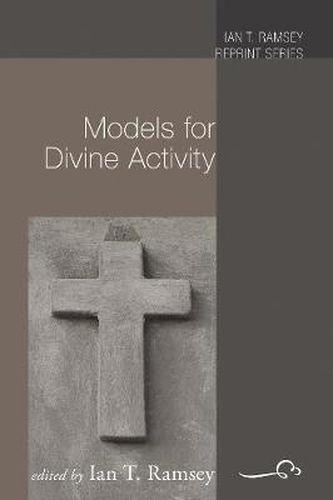Readings Newsletter
Become a Readings Member to make your shopping experience even easier.
Sign in or sign up for free!
You’re not far away from qualifying for FREE standard shipping within Australia
You’ve qualified for FREE standard shipping within Australia
The cart is loading…






This last book by the Bishop of Durham is the text of the Zenos Lectures that he gave in Chicago in 1966. In them, Dr Ramsey applied his well-known approach of models and disclosure situations to the doctrine of the Holy Spirit. The first lecture considers the origin and use of the model of wind, breath, air, from which the Spirit is named; subsequent lectures consider the models of economy and presence. In the discussion, a number of important issues are touched on: the personality of the Holy Spirit, the ubiquity of God, and the relationship of prayer to the presence of God. The final lecture goes on to counter criticisms that have been made of Dr Ramsey’s theology. Are models and disclosures not a substitute for God? Is not this approach virtually atheistic, with perhaps not much virtual about it? Because Dr Ramsey’s writings have appeared in a great many books and journals, it has also been thought fitting to include a comprehensive bibliography, and this book ends with a complete list of all his published works.
$9.00 standard shipping within Australia
FREE standard shipping within Australia for orders over $100.00
Express & International shipping calculated at checkout
This last book by the Bishop of Durham is the text of the Zenos Lectures that he gave in Chicago in 1966. In them, Dr Ramsey applied his well-known approach of models and disclosure situations to the doctrine of the Holy Spirit. The first lecture considers the origin and use of the model of wind, breath, air, from which the Spirit is named; subsequent lectures consider the models of economy and presence. In the discussion, a number of important issues are touched on: the personality of the Holy Spirit, the ubiquity of God, and the relationship of prayer to the presence of God. The final lecture goes on to counter criticisms that have been made of Dr Ramsey’s theology. Are models and disclosures not a substitute for God? Is not this approach virtually atheistic, with perhaps not much virtual about it? Because Dr Ramsey’s writings have appeared in a great many books and journals, it has also been thought fitting to include a comprehensive bibliography, and this book ends with a complete list of all his published works.